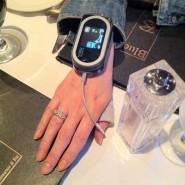 As healthcare transforms from a volume-based service to one that is more value-based, and “accountable care” becomes the focus for hospitals, clinics, and other provi
As healthcare transforms from a volume-based service to one that is more value-based, and “accountable care” becomes the focus for hospitals, clinics, and other provi
 As healthcare transforms from a volume-based service to one that is more value-based, and “accountable care” becomes the focus for hospitals, clinics, and other providers, it will be absolutely essential to take a more holistic view of community health status. How can you begin to make a difference if you don’t know where to focus? How can you move the needle toward a healthier population if you can’t precisely identify the environmental, social, economic, behavioral and other causes of ill health? How can you set priorities for the campaigns and outreach services that will make a difference for the populations you serve?
As healthcare transforms from a volume-based service to one that is more value-based, and “accountable care” becomes the focus for hospitals, clinics, and other providers, it will be absolutely essential to take a more holistic view of community health status. How can you begin to make a difference if you don’t know where to focus? How can you move the needle toward a healthier population if you can’t precisely identify the environmental, social, economic, behavioral and other causes of ill health? How can you set priorities for the campaigns and outreach services that will make a difference for the populations you serve?
If “seeing is believing” then I would encourage healthcare provider organizations to prepare for accountable care by investing in the tools they’ll need to survey community health and measure what they are doing to improve it. Here I am talking about technology that in other industries is commonly called “business intelligence”. When applied to healthcare, I like to call it “patient intelligence”.
What are these technologies? You may be surprised to learn that your organization already has many of the tools you’ll need to do the job. As I’ve traveled the world meeting with hospitals, clinics, and public health customers, more often than not I discover that they actually own the technologies needed to implement “patient intelligence” solutions. They just haven’t deployed them. This includes tools to create executive dashboards on business performance, clinical key performance indicators and quality measures. Just a few weeks ago I visited a hospital organization in New Zealand that was doing amazing work with tools they already owned.
 As more and more population and community health data becomes digital, and health organizations capture digital information on their patients, there is a significant opportunity to use all of this information to improve health and the provision of healthcare services. For example, let’s say your organization needs to have a better understanding of community health status, particularly within its patient capture area. Mixing together sources of community health, economic, social, business and other data (which is often now available from a variety public organizations and cloud service providers) with your organization’s own data sets, you can gain powerful insights about your business, where your patients are coming from, and why. You can also target opportunities that will have a greater impact on the populations you serve.
As more and more population and community health data becomes digital, and health organizations capture digital information on their patients, there is a significant opportunity to use all of this information to improve health and the provision of healthcare services. For example, let’s say your organization needs to have a better understanding of community health status, particularly within its patient capture area. Mixing together sources of community health, economic, social, business and other data (which is often now available from a variety public organizations and cloud service providers) with your organization’s own data sets, you can gain powerful insights about your business, where your patients are coming from, and why. You can also target opportunities that will have a greater impact on the populations you serve.
In the short video clip below, you’ll see how a fictional health organization is able to analyze community health and patient data to better understand the etiology of chronic conditions and the factors that contribute to poor health in the community. This might provide insight for how the health organization could work with the broader health and business community to improve health and reduce the burden of chronic disease in populations most at risk. You’ll see how geo-spatial mapping and rich data visualization are combined to enhance understanding of population health.





